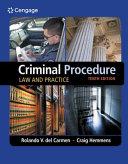
Panduan Praktis Agribisnis Kelapa Sawit Rakyat Berwawasan Lingkungan
(dengan Potensi Produksi 42 Ton/Hektar/Tahun)
Keberhasilan sektor perkebunan kelapa sawit dengan pola PIR (PERKEBUNAN INTI RAKYAT) pada tahun 1980an mendorong para pemodal baik yang skala kecil maupun besar ramai-ramai menginvestasikan modalnya ke budidaya tanaman kelapa sawit seperti di daerah SUMATERA, KALIMANTAN, SULAWESI dan PAPUA. Pada tahun 1979 areal perkebunan kelapa sawit luasnya 260.939 hektar terdiri dari perkebunan rakyat seluas 3.125 hektar (1,2%) perkebunan besar Negara seluas 176.408 hektar (67,6%) dan perkebunan besar swasta seluas 81.406 hektar (31,2%), kemudian berkembang menjadi 7.992.202 hektar pada tahun 2009, terdiri dari perkebunan rakyat seluas 3.498.425 hektar (43,77%),perkebunan besar Negara seluas 608.580 hektar (7,62%) dan perkebunan besar swasta seluas 3.885.197 hektar (48,6%). Pada tahun 1012 meningkat lagi menjadi 9.230.000 hektar dengan luas perkebunan besar Negara masih tetap 608.580 hektar (6,59%), selebihnya adalah perkebunan besar swasta dan perkebunan rakyat. Pada saat ini perkebunan kelapa sawit di Indonesia telah mencapai 10,5 juta hektar.
- ISBN 13 : 6024755708
- ISBN 10 : 9786024755706
- Judul : Panduan Praktis Agribisnis Kelapa Sawit Rakyat Berwawasan Lingkungan
- Sub Judul : (dengan Potensi Produksi 42 Ton/Hektar/Tahun)
- Pengarang : Siswadi,
- Penerbit : Deepublish
- Bahasa : id
- Tahun : 2016
- Halaman : 250
- Google Book : https://play.google.com/store/books/details?id=5QaKDwAAQBAJ&source=gbs_api
-
Ketersediaan :
Pengangkutan Produksi dan Pemasaran Hasil 13.15.1.Pengangkutan Produksi Kecepatan pengangkutan sampai ke pabrik adalah suatu keharusan dalam menjaga 2 kepentingan yang berbeda sekaligus yakni kualitas minyak bagi pabrik penerima dan ...









